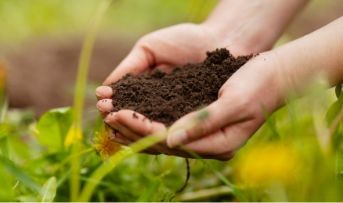Blog Details - Magma HDI

Here's the guide to sustainable farming, promising a greener future 19th April 2019
As we move towards a greener future, sustainable farming practices are gaining more importance. Not only do these practices help to protect our planet, but they also benefit farmers and their businesses. Here, we will explore the guide to sustainable farming and how it promises a greener future.
Sustainable farming is the practice of producing food and fibre using methods that protect the environment, public health, human communities, and animal welfare. It is a holistic approach to farming that considers the long-term impacts of agricultural practices on natural resources, biodiversity, and the climate. These practices are not only good for the farmers but also encouraged by a general insurance company, which faces fewer risks and liabilities when insuring sustainable farms.
The benefits of sustainable farming practices
By adopting sustainable practices such as crop rotation, cover crops, conservation tillage, and integrated pest management, farmers can regulate their environmental footprint and promote biodiversity. These practices can also reduce risks and liabilities, leading to lower premiums from a general insurance company.
Here are some promising sustainable agriculture practices every farmer should know to create a greener future.
1. Crop rotation
Crop rotation is the practice of planting different crops in the same field each year. This helps to reduce soil erosion, nutrient depletion, and the build-up of pests and diseases in the soil.
2. Composting
Composting is the process of turning organic waste into nutrient-rich fertiliser for crops. It's an eco-friendly and cost-effective method of soil enrichment.
3. Cover crops
Cover crops are planted to cover the soil during the off-season to prevent erosion and nutrient depletion. These crops also help to fix nitrogen in the soil, making it more fertile for the next season.
4. Conservation tillage
Conservation tillage is the practice of leaving crop residues on the soil surface after harvest. This helps to reduce soil erosion, increase soil organic matter, and conserve moisture.
5. Integrated pest management
Integrated Pest Management (IPM) is a sustainable approach to pest management that combines biological, cultural, and chemical methods. IPM helps to reduce the use of pesticides and promotes the natural balance of the ecosystem.
6. Agroforestry
Agroforestry is the practice of integrating trees and crops on the same land to create a sustainable and diverse farming system. This system promotes biodiversity, reduces soil erosion, and enhances the soil's fertility.
7. Precision agriculture
Precision agriculture is the use of technology and data to optimise crop production and reduce waste. This approach helps farmers to make informed decisions about the use of fertilisers, pesticides, and water resources.
8. Organic farming
Organic farming is a method of agriculture that avoids the use of synthetic fertilisers, pesticides, and genetically modified organisms. Organic farming promotes soil health and biodiversity and reduces the negative impact of agriculture on the environment.
9. Water conservation
Water conservation is a critical aspect of sustainable farming. Farmers can use various techniques such as drip irrigation, rainwater harvesting, and water-efficient crops to reduce water waste and preserve this precious resource.
10. Green manure
Green manure is a cover crop that's grown specifically to be turned into the soil to improve its fertility. This practice helps to reduce soil erosion, increase organic matter, and improve soil structure.
In conclusion, sustainable farming is the way forward for a greener, more equitable, and more resilient food system. By adopting sustainable agriculture practices, farmers can contribute to society and the country, promote biodiversity, improve their profitability and resilience, and be the torchbearer of a more sustainable and equitable future for all. These practices also reduce risks and liabilities for a general insurance company, leading to lower premiums and a more stable and sustainable insurance market. By working together, farmers and a general insurance company can create a more sustainable and equitable food system that benefits everyone.
Click HERE to buy the best general insurance in India.
Disclaimer: The information provided above is for illustrative purposes only. To get more details, please refer to policy wordings and prospectus before purchasing a policy.

